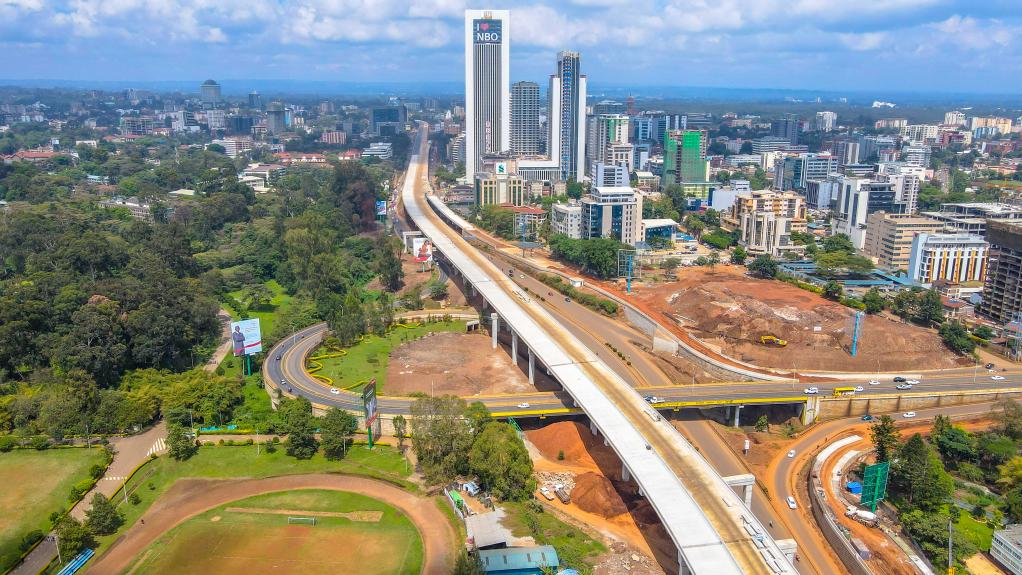Africa on the go thanks to BRI-led makeover
By Edith Mutethya in Nairobi, Kenya | China Daily | Updated: 2022-08-27 09:59

Infrastructure projects essential for continent's transformation, experts say
Much of Africa is busy burying the stereotype of a backward continent, as gleaming new roads, railways and bridges transform the landscape thanks to an infrastructure boom driven by the China-proposed Belt and Road Initiative.
And the impact of the BRI on Africa is getting plenty of attention from outside the continent as well.
In a virtual meeting on Wednesday, experts from Africa, China and Pakistan underscored the initiative's role in improving infrastructure across the continent and creating employment opportunities.
Frederick Golooba Mutebi, an independent researcher, said the BRI has come just at the right time for Africa with its critical need to boost infrastructure as part of efforts to drive economic development.
Mutebi said massive investment in infrastructure opens up productive areas of a country and also brings the nations of the continent closer together.
"One of the serious constraints to development in Africa is lack of infrastructure, but massive investment in infrastructure under the BRI is contributing enormously," the researcher said. "The BRI is a very effective way to go about helping Africa to transform itself."
Mutebi urged more African countries to embrace the benefits of the BRI, and not be distracted by a false narrative that China is coming to exploit Africa.
George Nsamba, a risk management executive in South Africa with a keen interest in the BRI, said that in addition to improving infrastructure, projects under the BRI have reduced unemployment through the demand for construction workers.
In southern Africa, Nsamba said, the Husab Uranium Mine in Namibia has provided 4,500 temporary jobs and 1,600 permanent jobs, while the Belo Monte substation in Angola has provided electricity to 300,000 households and benefited more than 2.5 million people.
Nsamba said that through the BRI African countries have been able to access loans, without exploitation and stringent conditions.
The initiative is also helping Africa move from subsistence rural farming to commercial-scale farming, as is the case with Zambia.
Opportunities boosted
The initiative has also led to the construction of more factories in Africa, boosting employment opportunities and widening the range of goods available to consumers.
Nsamba said that under the BRI, many schools and hospitals have been built, and Chinese health experts have brought their expertise to Africa.
Wang Xuekun, China's ambassador to Rwanda, said 52 African countries and the African Union Commission have signed cooperation documents with China, noting that the efforts have yielded tangible and substantial progress.
Wang said Chinese enterprises have built or upgraded more than 10,000 kilometers of railways for Africa, nearly 100,000 kilometers of highways, nearly 1,000 bridges, almost 100 ports and more than 80 large-scale power facilities.
"Chinese firms have also helped countries in Africa build more than 130 medical facilities, more than 170 schools, and trained more than 160,000 professionals in various fields," the ambassador said.
Mustafa Sayed, the executive director of the Pakistan-China Institute, said Africa can learn from his country on how it has improved its connectivity and improved business through BRI projects.
Sayed said that unlike some years back, Pakistan is no longer experiencing power outages due to energy investment projects carried out by China under the BRI.
He said Chinese and Pakistani companies have carried out joint ventures including road and port construction through a public-private partnership model. He added that the projects have provided job opportunities to many people.
Zha Daojiong, a professor at Peking University's School of International Studies and Institute of South-South Cooperation and Development, said that through the BRI, organic products grown in Africa can now be sold to China through e-commerce channels. This is in addition to exports of agricultural products from Africa, like Kenyan fresh avocados and Zambian soybeans.
Zha said win-win cooperation, multilateralism, inter-civilization dialogue and sovereign equality are the key principles behind China's efforts to help build a community with a shared future for mankind.
























